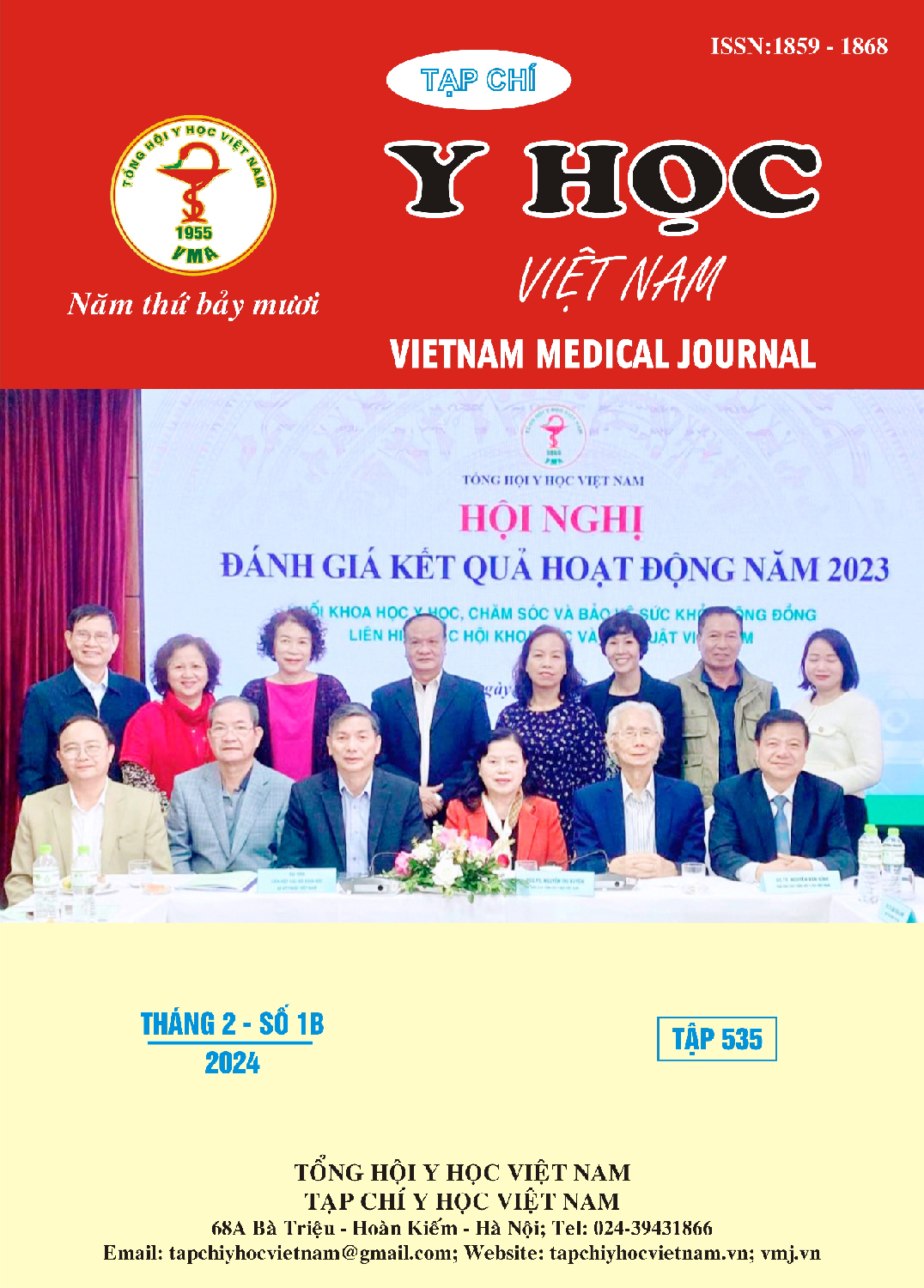THE PROPORTION OF ST-SEGMENT ELEVATION MYOCARDIAL INFARCTION PATIENTS WITH INCOMPLETE REVASCULARIZATION IN MULTIVESSEL DISEASE: A PROSPECTIVE STUDY
Main Article Content
Abstract
Background: Coronary artery disease (CAD) is a leading global cause of mortality.1 In acute ST-segment elevation myocardial infarction (STEMI), around half of patients have involvement in multiple coronary artery disease, increasing the risks of recurrent infarction and mortality compared to those with a single affected vessel.2 Notably, incomplete revascularization in this subset is associated with a lower incidence of major adverse cardiac events (MACE) - 44% compared to 65% in those with incomplete revascularization. However, information on the prevalence of multi-vessel involvement among STEMI patients undergoing incomplete reperfusion in Vietnam is limited. Objective: To assess the prevalence of incomplete revascularization in patients with ST-Segment Elevation Myocardial Infarction (STEMI) and multivessel coronary artery involvement at Cho Ray Hospital in Vietnam. Patients and methods: This prospective cross-sectional descriptive study with longitudinal follow-up included 105 patients diagnosed with STEMI and multivessel coronary artery disease who underwent primary percutaneous coronary intervention between April 2022 and June 2022 at the Interventional Cardiology Department and the Cardiology Department of Cho Ray Hospital. Results: Results revealed that among the 105 patients undergoing primary percutaneous coronary intervention, 69.5% were male, with a mean age of 64.1 ± 11.5 years. The left anterior descending artery (LAD) was the most frequently involved culprit vessel (45.7%), followed by the right coronary artery (RCA) at 41.9%. The left circumflex artery (LCx) was the culprit vessel in 11.3% of patients, while the left main coronary artery (LMCA) had the lowest incidence at 0.9%. Stent placement in the culprit vessel was performed in all patients, and incomplete revascularization occurred in 68.6% of cases. Further analysis revealed that in 63.8% of patients, only one non-culprit coronary artery was narrowed, while 36.2% had stenosis in ≥ 2 non-culprit arteries. Among those with stenosis in one non-culprit artery, 61.2% underwent incomplete revascularization, while in the group with stenosis in ≥ 2 non-culprit arteries, the rate was 81.6%, indicating a statistically significant difference (p = 0.03). Conclusion: The study provides valuable insights into the prevalence of incomplete revascularization in STEMI patients with multivessel coronary artery disease in the context of Vietnam.
Article Details
Keywords
myocardial infarction, multivessel disease, incomplete revascularization
References
2. Corpus RA, House JA, Marso SP, et al. Multivessel percutaneous coronary intervention in patients with multivessel disease and acute myocardial infarction. Am Heart J. 2004;148(3): 493-500. doi:10.1016/j.ahj.2004.03.051
3. Mehta SR, Wood DA, Storey RF, et al. Complete Revascularization with Multivessel PCI for Myocardial Infarction. N Engl J Med. 2019; 381 (15): 1411-1421. doi:10. 1056/ NEJMoa1907775
4. Widimsky P, Wijns W, Fajadet J, et al. Reperfusion therapy for ST elevation acute myocardial infarction in Europe: description of the current situation in 30 countries. Eur Heart J. 2010; 31(8): 943-957. doi:10.1093/eurheartj/ ehp492
5. Fukutomi M, Toriumi S, Ogoyama Y, et al. Outcome of staged percutaneous coronary intervention within two weeks from admission in patients with ST-segment elevation myocardial infarction with multivessel disease. Catheter Cardiovasc Interv. 2019;93(5):E262-E268. doi:10. 1002/ ccd.27896
6. Halpern DG, Weinberg CR, Pinnelas R, Mehta-Lee S, Economy KE, Valente AM. Use of Medication for Cardiovascular Disease During Pregnancy: JACC State-of-the-Art Review. J Am Coll Cardiol. 2019;73(4): 457-476. doi:10.1016/ j.jacc.2018.10.075
7. Klein AJ, Casserly IP, Messenger JC. Acute left main coronary arterial thrombosis - a case series. J Invasive Cardiol. 2008;20(8):E243-246.
8. Kwon SW, Park SD, Moon J, et al. Complete Versus Culprit-Only Revascularization for ST-Segment Elevation Myocardial Infarction and Multivessel Disease in the 2nd Generation Drug-Eluting Stent Era: Data from the INTERSTELLAR Registry. Korean Circ J. 2018;48(11):989-999. doi:10.4070/kcj.2017.0387


